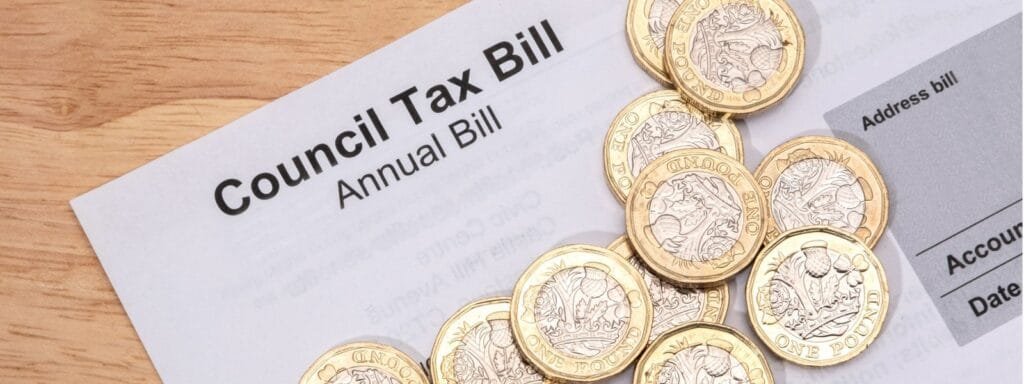If you’re struggling with your finances and have fallen behind with your household bills, you may be dealing with Council Tax arrears. Check out our guide to getting back on track
What are Council Tax arrears?
Council Tax is a fee each household pays to the local council each year to cover the services it provides. This might include your bin collections, public library, police and fire services, parks, and road maintenance.
Council Tax is typically split into ten monthly instalments and the amount you’ll need to pay will depend on your individual circumstances, the band your property is in, and the funds the council needs to cover its costs.
If you’re in Council Tax arrears it means that you’ve missed at least one of your monthly payments and now owe money to the council.
What happens if I can’t pay my Council Tax?
Council Tax is a priority debt, so it should be prioritised above other debt repayments like a credit card or personal loan. It’s classified as a priority as the council has strong powers to make you pay.
If you’re struggling to make your payments, be proactive and contact your local council as soon as possible. If you can, put some money towards the amount due, even if it’s not the full amount as this is preferable to not paying at all.
However, if you do miss a payment, you’ll usually receive a reminder from the council approximately two weeks later.
Life happens; perhaps you missed a payment because you forgot, an invoice wasn’t paid on time, or you had an unexpectedly large bill to cover. In that case, you can still make a payment within seven days of receiving the reminder to clear the debt. Double-check the letter details before transferring money as sometimes the arrears account is different to the standard Council Tax one.
If you can’t make a payment within seven days or it’s the third time you’ve paid late, you’ll receive a final notice and be asked to pay the entire year’s Council Tax bill within seven days.
The council will likely apply to the court to obtain a liability order if this payment isn’t made. Depending on the circumstances, enforcement action could include sending in bailiffs, deducting money from your pay or benefits, or even applying to have you declared bankrupt (if you owe more than £5,000). Court and bailiff fees may also apply.
If you’re found to have deliberately not paid your Council Tax and the council hasn’t been able to recover the debt, the penalty could be spending three months in prison.
How should I deal with Council Tax arrears
There are steps you can take to help you deal with your Council Tax arrears before further action is taken:
Speak to the council
If you think you won’t be able to make your next Council Tax payment, it’s best to be proactive and not wait for the council to contact you. Ask to speak to someone in the Council Tax office and explain your situation.
They may be more open to supporting you than you might think. In fact, they are required to explore other solutions before resorting to applying for a liability order. They may direct you to debt advice services or offer an affordable repayment plan. In some cases, the council also has discretionary powers to reduce your bill and you can make a payment offer to the council at any time.
Find out if you’re eligible for a reduction
Depending on your circumstances, you might be eligible for a reduction in your Council Tax bill. Different councils may operate different programmes but, in general, you may qualify for reduced Council Tax if you have a low income, are the only adult in your home, live with someone who has a disability, or live with people who aren’t liable to pay like full-time students or apprentices.
In England, you may also be able to claim a Second Adult Rebate on your Council Tax if you live with another adult but they’re on a low income, don’t contribute towards rent, and aren’t liable to pay the Council Tax bill.
Consider Breathing Space
Breathing Space is a government programme that gives you up to 60 days to seek debt advice. If you’re in Council Tax arrears and finding it hard to get back on track, the threat of legal action or escalating interest could be making your situation even more difficult. With Breathing Space, you’ll be able to assess the options available and take positive steps without facing any further action from the council.
Seek debt advice
Whether you’re finding it more difficult to pay your Council Tax bill each month or you’re already in Council Tax arrears, seeking professional support could help. Our team are available to lend an ear, taking the time to understand your situation, and explain the different options available.
You may want to consider an informal debt management plan or a more formal debt solution like an Individual Voluntary Arrangement (IVA) to take control of your finances and get back on track. We can also help you identify whether you’re eligible for any reductions or to take Breathing Space.






